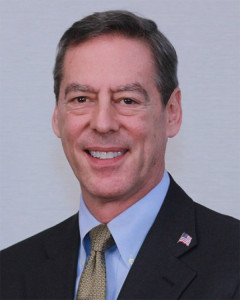
Road to going green paved with incentives: Save money, enhance marketability, among others - by Schleider
At this point in time, we’ve grown comfortable with green best practices and the process of green retrofit, as well as the technologies and techniques employed.
Every smart building owner and manager, architect and engineer, designer and broker knows going green saves money, enhances marketability, provides a healthier environment, increases tenant retention and builds property value. They also know that extensive retrofits often entail the expenditure of very large amounts of capital that will break most operating budgets.
Although green retrofits are outstanding long-term investments, in the short-term, building owners may need public and private incentives as well as financing in order to reap the benefits of going green.
The time to move forward with going green, especially with regard to energy consumption, is now. According to the U.S. Energy Information Administration (EIA), buildings consume 47.6% of all energy produced in the U.S. and 75% of all electricity. That 75% figure also applies to New York City buildings being responsible for 3/4 of the city’s carbon emissions.
As – or more – significantly, the most recent International Panel on Climate Change emphasizes the urgency for “immediate and sustained action on climate change…the time has arrived for taking the necessary steps to preserve livable conditions….”
Numerous resources, from technical support to tax rebates and financial assistance, are available at the federal, state and local levels to help building owners move forward with green retrofits,
The U.S. Department of Energy Office of Energy Efficiency and Renewable Energy provides financial assistance for green building and energy efficiency projects with the goal of increasing use of renewable energy and energy efficient technologies.
The New York State Energy Research & Development Authority (NYSERDA) offers a variety of programs for business and industry, among them the Commercial Existing Facilities Program which supports design teams and building owners with regard to building energy efficient structures; Demand Management Program which helps businesses optimize energy usage, manage costs, and reduce peak demand. (This is a Con Edison and NYSERDA partnership for which Con Edison electric customers in New York City and Westchester are eligible.); and FlexTech which provides cost-shared technical services to create assessments for reductions of energy and cost.
New York State’s CLS Tax 19 is a green building corporate tax credit for owners of buildings that meet certain green standards for energy efficient improvements. The program offers up to $2 million per building.
New York City allocated $37 million of its American Recovery and Reinvestment Act funding to create the New York City Energy Efficient Corporation (NYCEEC). The NYCEEC is a not-for-profit finance company that works with building owners, financial institutions and energy service companies to provide financing solutions for energy efficiency and clean heat projects in the five boroughs.
With the Energize NY program, Property Assessed Clean Energy (PACE) financing is available for commercial buildings, financing up to 100% of project cost that is paid back by taxes over a specific terms period with amortization of costs up to 20 years. As PACE programs are tied to the property, they can be transferred should the property is sold. Eligible improvements include lighting HVAC, chillers, boiler conversions, pumps, furnace upgrades, insulation, windows and smart controls in the category of energy efficiency and solar PV, solar thermal geothermal and wind in the category of renewable energy.
Financing may also be available from private sources such as solar companies, LED lighting installation firms and similar.
It’s impossible in one article to summarize all of the incentives available to undertake deep energy improvements. (One good source for information is Energy-Grants.net - Get Paid to Go Green). But it behooves a building owner to explore the realm of available financing and tax incentives to reap the long-term benefits of having a green(er) building.
Steve Schleider, MAI, LEED-AP BC+D is president of Metropolitan Valuation Services, New York, N.Y.
